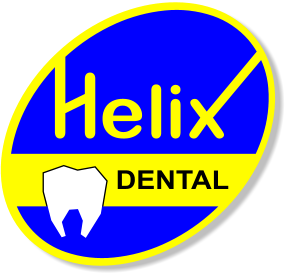
5 Bad Habits That Can Damage Your Oral Health
Good habits are important for keeping our body fit. However, there are some habits that are bad for teeth, gums, and other parts of the oral cavity. Practicing these habits can lead to dental problems such as cavities, bad breath, and gum disease.
- Nail Biting
Nail biting is a nervous habit that releases endorphins into the bloodstream to reduce anxiety levels. However, over time, this can damage the cuticle and the teeth as well. The best way to stop is to first become aware of when you're engaging in this behavior. You can try to give yourself something else to do with your hands – for example, bringing a book or journal with you to read while you're waiting in the reception area at the dentist's office. If you're at home, you could also try knitting or baking. If you bite your nails in times of stress, consider seeking out counseling or other methods for dealing with your anxiety.
- Smoking
The most dangerous habit that can affect our oral health is smoking. Cigarettes are one of the main causes of oral cancers, gum disease, and tooth decay. Cigarette contains over 7000 chemicals, out of which addictive nicotine is one of them. Nicotine improves the flow of blood to our gums and also reduces saliva production. It causes the blood vessels to constrict, which lowers the blood circulation level in our mouth and gum area. Reduced blood flow limits the ability of our body to heal itself. Studies say that people who smoke are 25 times more likely to develop a periodontal-related disease than those who don't smoke. Smokers have more pockets around their teeth which help the bacteria to thrive. There are various treatments for smokers, such as antibiotics, to reduce the infection, but the best way is to quit smoking completely, as it affects not only your oral health but also your overall health.
- Aggressive Brushing
Did you know that using too much force when brushing your teeth can damage the enamel on your teeth? Enamel is the outermost layer of your tooth that sits above the softer dentin layer. It is the hardest material in the human body and protects the more sensitive inner layers of the teeth from bacteria and infection.
Over time, aggressive brushing can wear down the enamel exposing the sensitive layers underneath, which can lead to discoloration, cavities, and even tooth loss over time. You can protect your tooth enamel by practicing gentle dentistry and avoiding habits that damage your dental health.
- Teeth Grinding
Clenching or grinding your teeth at night can damage your enamel and put pressure on the temporomandibular joints (TMJ). This may eventually lead to TMJ disorder, which affects the jaw joint. Some symptoms include headaches, pain in the jaw and face, the clicking of the jaw, and pain when chewing. Over time, this may lead to tooth damage and the need for restorative dentistry treatment, such as dental crowns to repair damaged teeth.
Treatment options for bruxism may include wearing a night guard while you're sleeping to prevent damage to the teeth and covering the upper and lower teeth with crowns if the teeth are damaged by teeth grinding.
- Not Visiting A Dentist Regularly
The oral cavity is the gateway to the rest of the body, especially when it comes to oral health. Ignoring oral care can lead to serious dental health issues, including tooth decay and gum disease. Some of the major consequences of ignoring dental care include tooth loss, health disorders like diabetes and heart disease, severe infection, etc. So make sure that you visit your dentist at regular intervals to get your oral health looked after.
Some patients avoid seeing their dentists because of the fear of undergoing dental procedures. But keep in mind that regular dental visits prevent critical dental issues such as gum diseases, cavities, tooth sensitivity, etc. Moreover, professional cleanings and examinations help us detect early signs of trouble so we can treat them before they worsen and cause other complications. If you are avoiding dental appointments because of fear or anxiety, talk to your dentist about it so he or she can recommend certain relaxation techniques to help you stay calm during the appointment.
If you’re interested in learning more about good oral care habits in Florham Park, we invite you to schedule a consultation with us.
Location
15 James St Suite 1,
Florham Park, NJ 07932
Office Hours
MON9:30 am - 5:30 pm
TUE - WED9:00 am - 6:30 pm
THUClosed
FRI9:00 am - 6:30 pm
SAT9:00 am - 2:00 pm
SUNClosed






comments